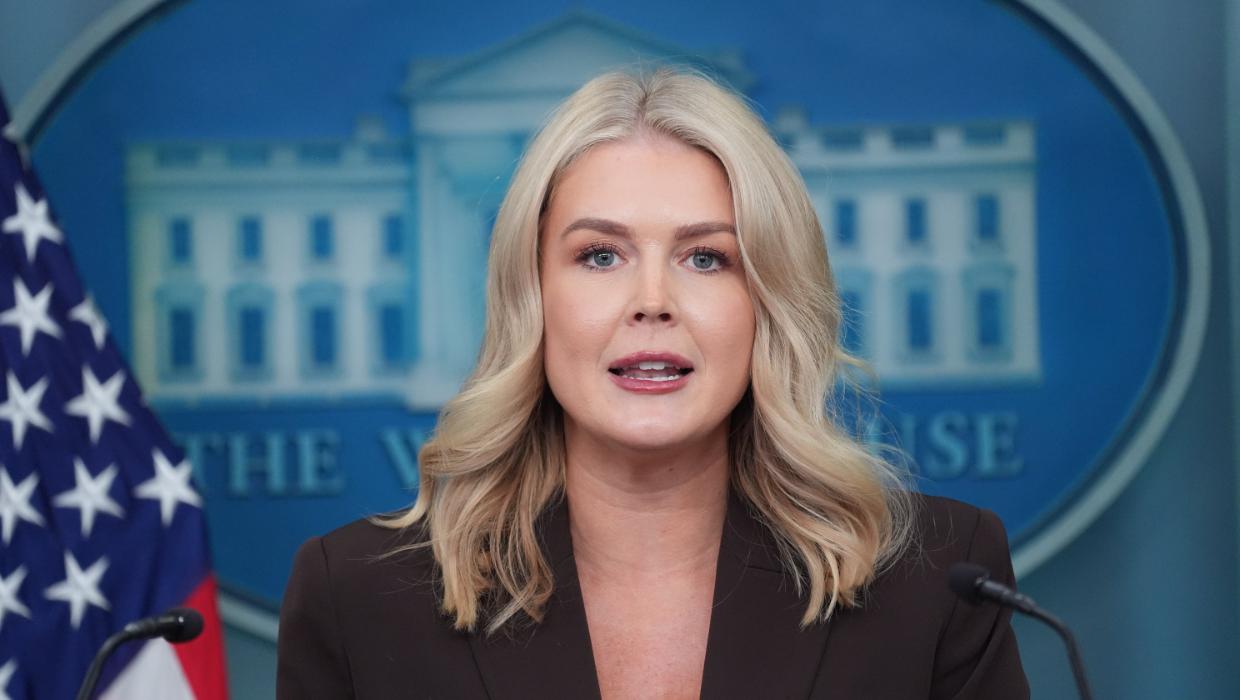Top Stories
White House Press Secretary Defends Text Exchange with Reporter

The White House press secretary, Karoline Leavitt, has defended her recent text exchange with a reporter concerning former President Donald Trump and his choice of Budapest for an upcoming meeting with Russian President Vladimir Putin. The incident has drawn significant attention, prompting discussions on the appropriateness of such exchanges in a formal press setting.
During a press briefing, Leavitt was questioned about Trump’s decision to select Budapest as the meeting venue. The inquiry aimed to uncover the rationale behind the choice, given the city’s political significance and historical context. In her response, Leavitt referenced personal anecdotes, asserting that the choice was not arbitrary but rather a meaningful selection. This remark was met with mixed reactions from the media present.
Details of the Exchange
Leavitt’s comments followed a series of inquiries regarding the logistics and implications of the meeting. She stated, “Your mom did,” in response to a question about the reasoning behind Trump’s venue selection. The comment, intended as a light-hearted retort, has sparked controversy over whether it was appropriate for an official press briefing.
Critics argue that such remarks undermine the seriousness of the press office’s role, while supporters contend that it reflects Leavitt’s personality and willingness to engage with reporters. The White House has emphasized the importance of transparency and open communication, yet incidents like this raise questions about the balance between professionalism and personal interaction.
Media analysts have noted that while humor can be effective in easing tensions, it must be carefully applied, particularly in a politically charged environment. The choice of Budapest for the meeting with Putin is significant, given the ongoing geopolitical dynamics between the United States and Russia.
Reactions from the Media and Public
The exchange has prompted varied reactions across social media platforms and news outlets. Some commentators have defended Leavitt, suggesting that her approach adds a relatable touch to press briefings. Others have criticized the remark as unprofessional, arguing that it distracts from substantive discussions about international relations.
As the meeting date approaches, the focus will likely shift to the agenda and outcomes of the Trump-Putin discussion in Budapest. Analysts are keenly observing the implications of this meeting on U.S.-Russia relations and the broader geopolitical landscape.
The White House continues to maintain that the meeting is vital for diplomatic dialogue. Leavitt’s comments, while controversial, highlight the complexities of communication in modern politics, where every word is scrutinized and interpreted through multiple lenses.
As the situation develops, it remains to be seen how this incident will impact future interactions between the press and the White House press office.
-

 World4 months ago
World4 months agoTest Your Knowledge: Take the Herald’s Afternoon Quiz Today
-

 Sports4 months ago
Sports4 months agoPM Faces Backlash from Fans During Netball Trophy Ceremony
-

 Lifestyle4 months ago
Lifestyle4 months agoDunedin Designers Win Top Award at Hokonui Fashion Event
-

 Entertainment4 months ago
Entertainment4 months agoExperience the Excitement of ‘Chief of War’ in Oʻahu
-

 Sports4 months ago
Sports4 months agoLiam Lawson Launches New Era for Racing Bulls with Strong Start
-

 World5 months ago
World5 months agoCoalition Forms to Preserve Māori Wards in Hawke’s Bay
-

 Health4 months ago
Health4 months agoWalking Faster Offers Major Health Benefits for Older Adults
-

 Lifestyle4 months ago
Lifestyle4 months agoDisney Fan Reveals Dress Code Tips for Park Visitors
-

 Politics4 months ago
Politics4 months agoScots Rally with Humor and Music to Protest Trump’s Visit
-

 Top Stories5 months ago
Top Stories5 months agoUK and India Finalize Trade Deal to Boost Economic Ties
-

 Health2 months ago
Health2 months agoRadio Host Jay-Jay Feeney’s Partner Secures Visa to Stay in NZ
-

 World5 months ago
World5 months agoHuntly Begins Water Pipe Flushing to Resolve Brown Water Issue









